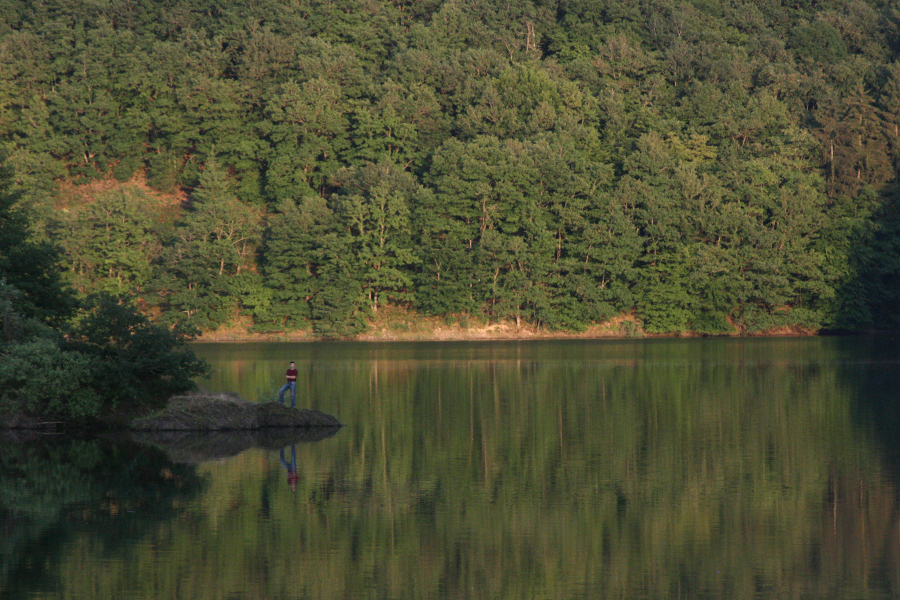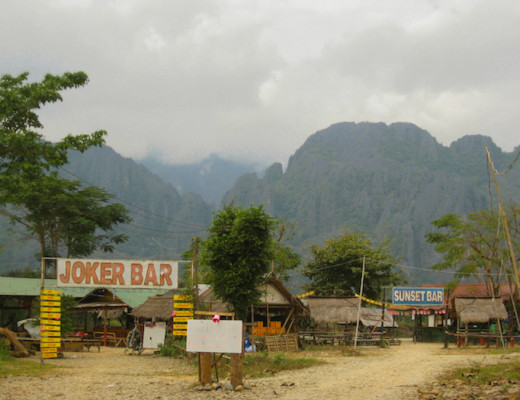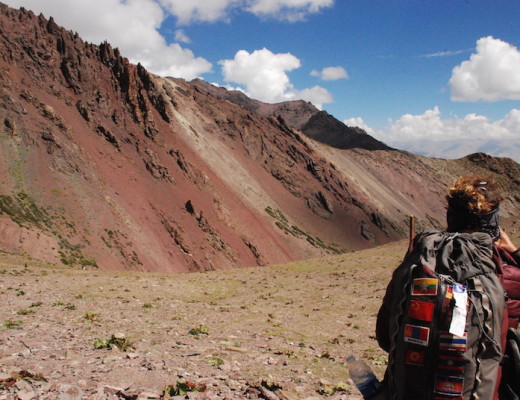1. Pick Your Battles
“You are so not American.”
It’s supposed to be a compliment, but I’m never quite sure how to respond.
I’ve heard women complain that as soon as they were pregnant and showing, people took it as an invitation to cross the line: to comment on their bodies, to ask overly personal questions, to generalize and to share unwelcome opinions.
Oddly enough, the American abroad is in the same boat. (Condolences to all pregnant American expats!)
It wasn’t always like this. When I was a kid, being abroad was peachy. Everyone loved us. As a ten-year-old, I’d never done anything to warrant this American “coolness,” but I didn’t question it much.
Then came the arrival of my awkward teen years and the equally awkward George Bush. Everything changed. After frequent bullying on a school trip to London we collectively decided to masquerade as Canadians to avoid harassment. Problem solved. Family and old friends in Europe would speak angrily about the US and, more notably, about its population.
I once asked an Israeli girl what it’s like being from Israel. She told me if anyone can relate, it’s me. “It’s complicated,” she said. “I love it. It’s home, but it’s a complicated place. You’re American. It’s probably the same for you.” She was right, even though I didn’t know it yet.
Everyone is entitled to their opinions, but they’re not entitled to your time.
Most citizens of the world follow and are affected by the state of US politics, so when they come face-to-face with a real-life representative, it’s open season. I of course always promise to pass on their concerns to our Commander-in-Chief.
I grew up in Northern California and would never claim to know America, but people often do. Some spend every New Year’s Eve in Vegas. Others are frequently in Chicago for work. Most have done a year abroad in towns like Norman, Oklahoma, or Mason City, Iowa. As I sit listening to an acquaintance passionately explaining the ignorance of all Americans, the irony is not lost on me (nor is the redundancy: this happens a few times a month in one form or another).
I’ve been told that New York is also un-American. As is any indie film, old wood-paneled cafe and mildly alternative town — all things cool and authentic. Apparently, my entire upbringing has been quite un-American, and who knew that all my friends and hangouts are too. The crew of yogis, vegetarians and travelers I grew up with? Nope, not American. Those farmer’s markets and green energy communities? You catch my drift.
I get the confusion. As soon as the drawl, beer bellies and extroversion is gone, some lose their stereotyping compass and I fall into the gray area, despite the fact that I can throw a football and love marshmallows.
Obviously, not everyone thinks like this — I don’t want to generalize either — but these encounters have been a regular part of my life for the past six years.
My advice to anyone finding themselves having similar confrontations? Give it up now (I’m still learning how that works).
The world is complicated. People are angry. Injustice is ubiquitous. Everyone is entitled to their opinions, but they’re not entitled to your time.
Lead by example.
If there’s a battle there, it’s not yours.
2. Go Nowhere, Slowly
Momentum does one thing well. It builds. And it builds, until it’s almost unstoppable. This can be a bad thing (avalanches) or a good thing (healthy eating).
Here’s another one: whatever you feed, grows. Once you’ve started feeding the travel bug, it’s tough to appease. You crave new sights, novel absurdities, photo ops…
Although I’ve lived in Europe for a few years now I still operate like a tourist, approaching each weekend like an opportunity for exploration. Where can I go? What can I see? Where haven’t I been?
When we explore close to home there’s less luggage involved, but a lot
more baggage.
A couple of weeks ago, we found ourselves in possession of the elusive four-day weekend (laaaa, angels sing, heavens open up). So we brainstormed and googled and planned. The Alps? Rotterdam? Berlin? The Channel Islands? Lake Constance it is!
“But do you really feel like driving five hours?”
“Not really.”
“Me neither.”
Back to the drawing board. Heidelberg it is! We set out, and in the end, that’s all we did: set out.
After 20 minutes on the road and two hours still ahead of us, we realized we didn’t want to go anywhere at all. We turned around, headed home and enjoyed one of the best weekends we’ve had all year. Habit packed the car and started driving, but in the end we saw through the wandering addiction.
Sometimes a staycation can scratch that itch. They’re as good for the soul as they are for the wallet.
I challenge myself to explore my surroundings more. I challenge you too, particularly places with complicated memories attached: the town you used to visit with your ex-wife or husband; the beach drive you loved before you got into a car accident; maybe even the wooded hangout of your late dog.
When we explore close to home there’s less luggage involved, but a lot more baggage. Those explorations can be loaded and packed with emotion, positive or negative. Either way, they’re charged. It’s one reason why we like getting away and why leaving can feel safer than staying.
This year, let’s return to one place that we’ve avoided or nearly forgotten for whatever reason. Your childhood block. Your elementary school playground. A treehouse. A forest walk. See what happens. See what memories you find and how you’ve changed since they were written.
3. Watch Your Language
Pardon my French.
Something I used to say ALL the time before I lived in a predominantly French-speaking country. It’s tough explaining to a French person why we use this phrase to bookend profanity.
Bomb. Stoked. Hella. The shit. Ass backwards. Back asswards. Psyched. Trippy. Nuts. I got you. Cracked out. Two birds. Penny for your thoughts. Cut my losses. Phoney baloney. Captain Obvious. No shit, Sherlock. Over the moon. Beat around the bush. Chilax. Cutting corners. Lost the plot. Out of whack.
What’s the point of talking if you’re not communicating?
Luckily for my PG audience, slang has been expunged from my vocabulary beause I now see through a nonnative speaker’s eyes (or ears). Whenever I go home I’m surprised by the percentage of language made up of idioms and slang.
Much of the world’s population uses English to communicate. Whether a native speaker or not, it belongs to everyone. Accepting that truth and then adapting accordingly makes life much easier (and more enjoyable).
After moving to Cologne at the age of 22, I quickly learned that my style of English wasn’t universal, so I changed it. Articulation was key. I moved my mouth more and emphasized my ‘R’s less. If I’m too high speed, I kill the conversation and am met with glazed-over eyes. If I use jargon, I veer off course to explain its meaning and the conversation meets the same end. My natural form of humor is a no-go, but I’ve come up with more basic ways to convey it.
This may sound like an inconvenience, but it’s not. Sure I’m happy to reunite with people from my neck of the woods every once in awhile, but I also see incredible value in learning how to be more aware of subtle language choices, especially those that help you connect with people. After all, what’s the point of talking if you’re not communicating?
When I visit home, my friends sometimes accuse me of “talking funny,” and it takes awhile to get back into the groove linguistically, but once I’m in, it’s easy as pie.





1 Comment
Kathy Myers
July 8, 2016 at 4:59 pmThis is a great article (or to use the slang terminology; “Listicle”) You have enough experience being an American abroad to author these suggestions (authority is the root of author and authentic— which is what you are!) You have been a worthy ambassador for the U.S.